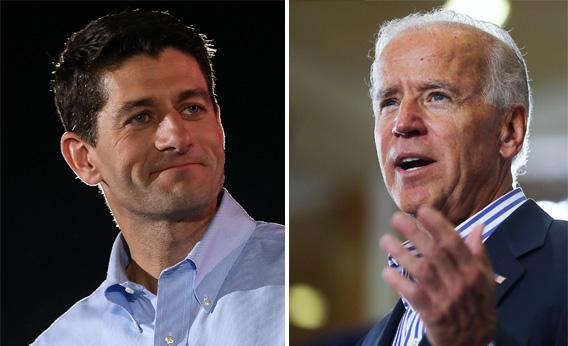Awakening Wednesday: Buddhism and the Vice Presidency
 Tomorrow night at 9 pm EST is the first and only vice presidential debate between Vice President Joe Biden and vice presidential nominee Paul Ryan (R-WI).Many of us have come to develop low expectations for these types of highly stage-crafted events. The two candidates will exchange rhetorical jabs and bicker over whose policies will do what to whom, but there will be few big ideas and even less accountability to the facts. This is only heightened by the fact that the modern vice presidency is a largely advisory position with few formal responsibilities.Under these circumstances I think it's helpful to step back from the minutia of polling data and policy to look at the big questions: What sort of people does a wise leader surround her- or himself with? What type of person should the vice president be?The famous Indian Buddhist philosopher Nagarjuna (150 - 250 AD) writes about just these questions in his Precious Garland of Royal Advice, chapter three, verses 323 - 329:
Tomorrow night at 9 pm EST is the first and only vice presidential debate between Vice President Joe Biden and vice presidential nominee Paul Ryan (R-WI).Many of us have come to develop low expectations for these types of highly stage-crafted events. The two candidates will exchange rhetorical jabs and bicker over whose policies will do what to whom, but there will be few big ideas and even less accountability to the facts. This is only heightened by the fact that the modern vice presidency is a largely advisory position with few formal responsibilities.Under these circumstances I think it's helpful to step back from the minutia of polling data and policy to look at the big questions: What sort of people does a wise leader surround her- or himself with? What type of person should the vice president be?The famous Indian Buddhist philosopher Nagarjuna (150 - 250 AD) writes about just these questions in his Precious Garland of Royal Advice, chapter three, verses 323 - 329:
323 Appoint ministers who know good policy,Who practice the dharma, are civil,Pure, harmonious, undaunted, of good lineage,Of excellent ethics, and grateful.324 Appoint generals who are generous,Without attachments, brave, kindly,Who use the treasury properly, are steadfast,Always conscientious, and practice the dharma.325 As administrators appoint eldersOf religious disposition, pure, and able,Who know what should be done, are skilled in the 74 royal treatises,Understand good policy, are unbiased, and are kindly.326 Every month you should hear from themAbout all the income and expenses,And having heard, you yourself should tell themAll that should be done for the centers of the dharma and so forth.327 If your realm exists for the dharmaAnd not for fame or desire,Then it will be extremely fruitful.If not, its fruit will be misfortune.328 O Lord of Humans, since in this world nowadaysMost are prone to wreak havoc on each other,Listen to how your governanceAnd your practice should be.329 Let there always be around you many personsOld in experience, of good lineage,Knowing good policy, who shrink from ill deeds,Are agreeable, and know what should be done.
A couple of things jump out immediately. First, not everything here is useful. Nagarjuna's idea that governments should support one (or any) religion—in this case, his particular interpretation of Buddhism—over others (or none) doesn't fit with contemporary Western democracy. Neither does his insistence that a leader's advisers should come from "a good lineage," tinged as it is not only with elitism and class privilege but also with ethnic and racial bias.A lot of work needs to be done to see whether these statements occur in every version of the text; what they meant in Nagarjuna's historical context; and what their most accurate translation is. Still, we may not come out agreeing with Nagarjuna on everything at the end of that process—and that's okay!What is useful here are the other qualities Nagarjuna assigns to a good adviser: Experience, wonkery, virtue, amiability, skill, courage, humility, honesty, fairness, and knowledge. He also gives leaders advice on how to deal with their advisers—hearing from them regularly and getting complete updates on all of their responsibilities.Institutions are more than just people, and it's important that we look at political and social structures. But if we're going to look at people, we should look at their characters and integrity alongside their personalities and policy proposals. I doubt that's very likely to happen in tomorrow's debate, but it's important to keep in mind.